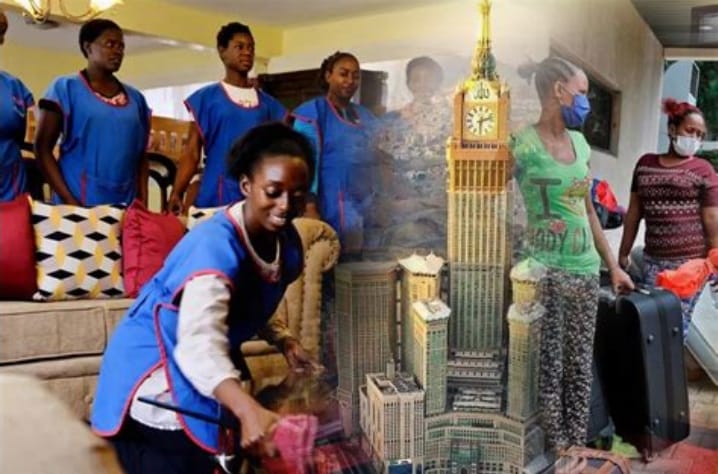A new report by Amnesty International has shed light on the disturbing realities faced by Kenyan domestic workers in Saudi Arabia, with over 70 women recounting abuse, deception, and exploitation at the hands of recruitment agents and employers.
The report, launched Tuesday in Mombasa, documents cases where workers were promised legitimate jobs—only to find themselves in inhumane working conditions, often without pay, rest days, or basic freedoms.
One of the women, Bigeni Maina Mwangi, said she was recruited under the pretense of becoming a beautician, but upon arrival in Saudi Arabia, her contract was changed. She was forced into domestic labor, working 17 months without receiving wages. Later, in Oman, she endured even worse conditions, serving multiple households without food or rest.
“The contract I signed in Nairobi was changed the moment I landed,” Mwangi said. “The agent said I had no choice but to work.”
Another survivor, Mejuma Shaban Ali, shared how she signed her contract at the airport in 2014 and ended up trapped in what she described as “a prison.” Her attempt to seek help at the Kenyan embassy in Saudi Arabia ended with a suggestion to find another employer, despite her ongoing suffering and her passport being held by her previous sponsor.
“There are people suffering in Oman with no way out,” she said.
Amnesty International is calling on both the Kenyan and Saudi governments to introduce stronger labor protections, prosecute abusive employers, and take action against rogue recruitment agencies. The report urges an end to systems that allow exploitation to continue unchecked.
“The current system amounts to modern slavery,” said Irungu Houghton, Executive Director of Amnesty Kenya.
More than 150,000 Kenyans are believed to be working as domestic workers in Saudi Arabia, many of whom face similar abuses. While Kenya has taken steps to crack down on fraudulent recruitment firms, including the recent repatriation of over 100 Kenyans stranded in Myanmar and Thailand, rights groups say more needs to be done to protect migrant workers abroad.
Victims are urging the government to establish emergency support systems, strengthen embassy assistance, and increase public awareness to prevent further exploitation.



